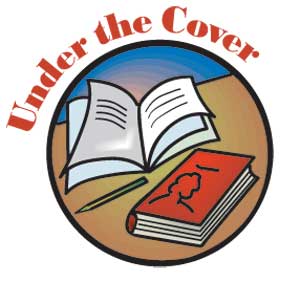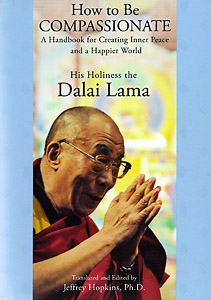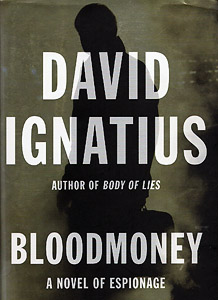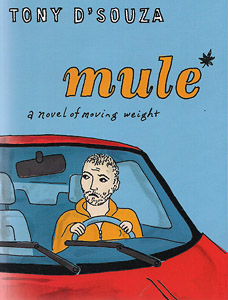
Books

 “How to be Compassionate: A Handbook for Creating Inner Peace and a Happier World,” by His Holiness the Dalai Lama; translated and edited by Jeffrey Hopkins; 147 pages; $20; Atria Books (http://imprints.simonandschuster.biz/atria)
“How to be Compassionate: A Handbook for Creating Inner Peace and a Happier World,” by His Holiness the Dalai Lama; translated and edited by Jeffrey Hopkins; 147 pages; $20; Atria Books (http://imprints.simonandschuster.biz/atria)
Anger can only lead to disaster. Instead, control your anger and show love, compassion, tolerance and patience and only then will your mind and heart open to peace. That pretty much sums up the 14th Dalai Lama’s newest book, translated and edited by Jeffrey Hopkins in a simple, easy-to-understand language.
His Holiness believes that enemies are the best way to cultivate patience. “And without patience, you could not develop true love and compassion, because you would be distracted by irritation,” he writes.
Pointing out that he is referring to voluntary compassion, not forced socialism, the Dalai Lama urges contentment with material goods. “No matter how much people love each other, eventually they must part,” he notes. “By seeing that the true nature of things is transitory, you will not be shocked by change when it occurs, not even the change brought about by aging and death.”
Neutralize lust, hatred and indifference, suggests the Dalai Lama, with reflective meditation and a strong will. Whether you believe in religion or not, simple kindness should be your philosophy. “No need for temples. No need for complicated philosophy. Your own mind, your own heart is the temple.”
The book is a must-read for those fascinated by Tibetan Buddhism philosophy, history and traditions. Besides, who better can explain compassion than someone who has lived in exile since 1959?
 “Bloodmoney: A Novel of Espionage,” by David Ignatius; 372 pages; $25.95; published by W.W. Norton Co. (www.wwnorton.com)
“Bloodmoney: A Novel of Espionage,” by David Ignatius; 372 pages; $25.95; published by W.W. Norton Co. (www.wwnorton.com)
That America shares a troubling alliance with Pakistan is even more evident than before when you sit down to read “Bloodmoney” by this Washington Post columnist who believes that the South Asian nation is the most interesting and potentially dangerous place on the globe. It is unnervingly comparable to the recent real-life story of CIA operative Raymond Allen Davis who fatally shot two Pakistani men but was released after the victims’ relatives received compensation (read blood money!).
When an operative of a cover company for a financially self-sustaining branch of CIA disappears in Karachi, all hell breaks lose. As it should. The off-the-book-operations boss dispatches a young female CIA officer to solve the puzzle. But things aren’t as they seem. Soon, the tussle between CIA, ISI and tribal clan warlords takes a nasty turn, which is resolved only with blood money payments. The reader is taken on a journey to South Waziristan, California, Qatar, Karachi, Islamabad, Belgium and London. Ignatius, author of bestsellers “Body of Lies” and “The Increment,” brings the bizarre but interesting world of espionage to light before our eyes. The book is money well spent.
 “Mule: A Novel of Moving Weight,” by Tony D’Souza; 304 pages; $17.95; published by Mariner Paperback Original (www.hmhbooks.com/mariner)
“Mule: A Novel of Moving Weight,” by Tony D’Souza; 304 pages; $17.95; published by Mariner Paperback Original (www.hmhbooks.com/mariner)
After “Whiteman” and “The Konkans,” Sarasota resident Tony D’Souza has written a gem of a novel based on his personal experience as a journalist. A young, struggling couple with a baby on the way barely makes it through a brutal winter in California. The recession has taken a toll on both till a neighbor who grows marijuana pitches an enticing proposal – transport a load from California to Florida for a lot of dough. The average, college-educated, middle class and incidentally freelance writer takes up on the opportunity to become a mule. But the path, which initially looks smooth, full of promise and ever-lasting, soon becomes bumpy with money-grabbing friends and gun-toting drug lords. Of course, all’s not well because it doesn’t end well. Soon, the husband gets involved in kidnapping, shootout and murder.
Hats off to D’Souza for pulling the ugly, scary and crime-ridden mask off the underworld of drug trafficking. This was only possible because of his research and personal investigation into this dangerous world from pick-up to drop-off, from plant growing to money laundering.
 In Tony D’Souza’s own words:
In Tony D’Souza’s own words:
When I turned the manuscript for “Mule” into my agent, she wasn't sure she wanted to represent it. The subject matter, drug running, was so different from my first two novels that she felt I might alienate my fans. But I urged her to submit it, and happily, my publisher liked the book.
“Mule” comes out of my experience of the recession. As a freelance writer who lives off of novel advances and magazine work, I came to depend on selling articles. But the recession battered freelance budgets and I found myself in 2008 with a baby on the way, my wife laid off from her retail job, and suddenly concerned about how to support my family. We were living in Northern California, where a lot of our neighbors were involved in the pot trade. Seeing the money they made, and the risks they took, set off my imagination. It wasn't a stretch to write about a character facing similar economic circumstances as mine getting involved in crime during a very desperate and frightening time.